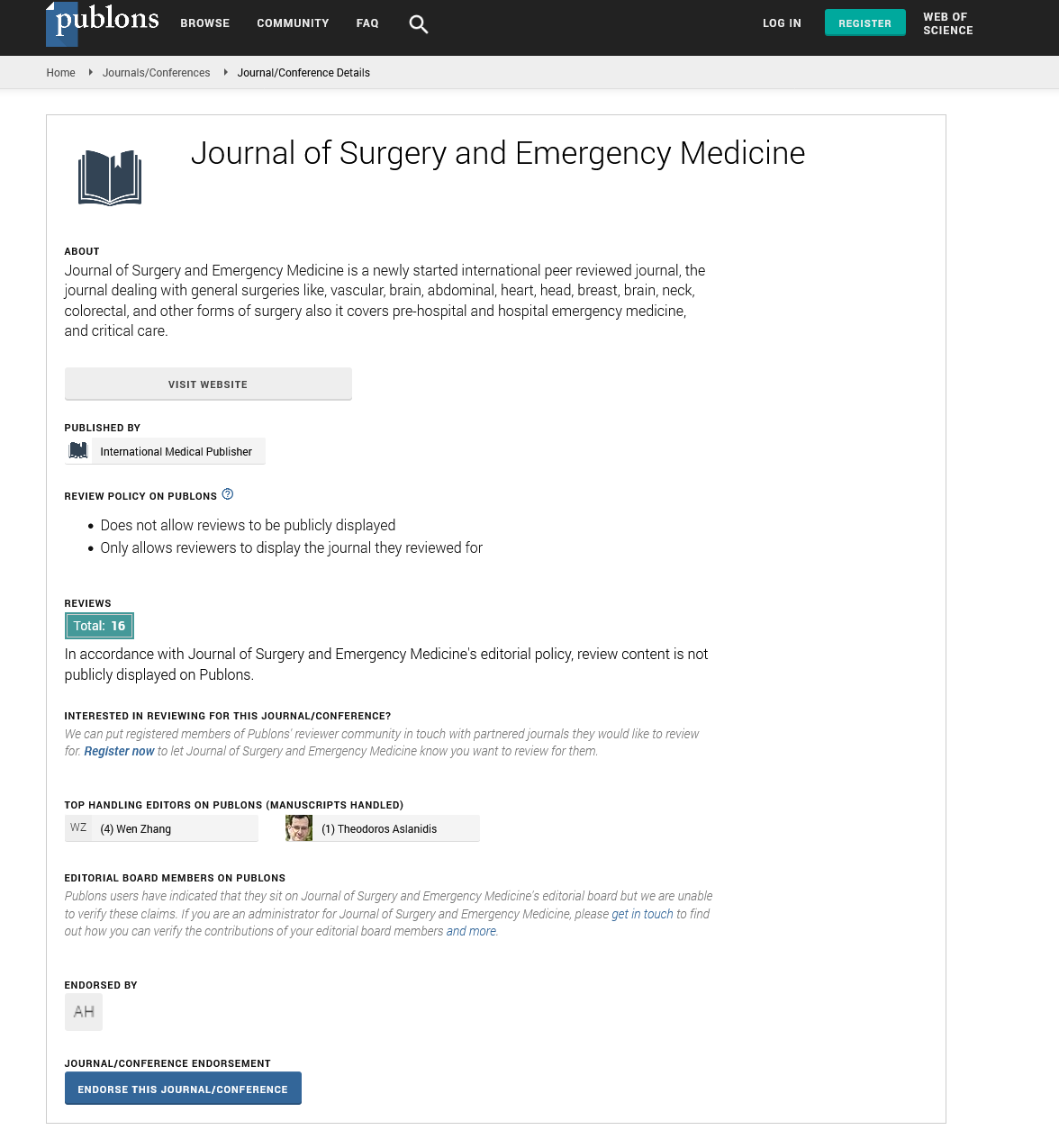Abstract
REFLUX RELATED ENT PROBLEMS
Introduction: Laryngopharyngeal reflux is the retrograde flow of stomach contents into larynx and pharynx above the upper esophageal sphincter(UES) leading to a variety of ENT problems. It is highly prevalent and expensive disease and currently almost like an epidemic. It is usually caused by failure of the natural physiological barriers letting the refluxate to travel up through UES. Discussion: Reflux Laryngitis is still to date a controversial diagnosis because of the lack of specificity in the presenting symptoms, clinical signs as well as in the diagnostic procedures available. It has been implicated in variety of common ENT problems like hoarseness, coughing, globus sensation, throat clearing, Reinke’s edema, muscle tension dysphonia, chronic sinusitis, otitis media with effusion, obstructive sleep apnea and even in recurrent respiratory pappillomatosis, laryngeal and pharyngeal carcinomas. The presenting symptoms usually are hoarseness, throat clearing, sore throat, globus, dysphagia and breathing difficulties. The common clinical findings are edema and erythema of the posterior larynx, subglottic edema, edema or congestion on vocal cords and thick endolaryngeal mucus, however all these appear to be non-specific. Reflux symptom index and Reflux finding score have been used to aid in the diagnosis. The gold standard investigation in the diagnosis is considered to be pH monitoring but its interpretation and correlation with the disease has also been doubtful. Other investigations available are esophageal impedancemetry, esophagoscopy and sensitive pepsin immunoassay. Treatment is done high dose proton pump inhibitors, antacids and dietary and lifestyle modifications. However evidence shows a lot of placebo effect and non-responders even with long term treatment. Conclusion: To conclude Laryngopharyngeal reflux remains a very controversial topic to discuss with continuous new innovations in its diagnosis and management. Further discussions in forums not only with otolaryngologists but also other fields like gastroenterology, pulmonology etc will be beneficial.
Author(s): Lekha K Kapoor
Abstract | PDF
Share This Article
Google Scholar citation report
Citations : 131
Journal of Surgery and Emergency Medicine received 131 citations as per Google Scholar report
Journal of Surgery and Emergency Medicine peer review process verified at publons
Abstracted/Indexed in
- Google Scholar
- Publons
Open Access Journals
- Aquaculture & Veterinary Science
- Chemistry & Chemical Sciences
- Clinical Sciences
- Engineering
- General Science
- Genetics & Molecular Biology
- Health Care & Nursing
- Immunology & Microbiology
- Materials Science
- Mathematics & Physics
- Medical Sciences
- Neurology & Psychiatry
- Oncology & Cancer Science
- Pharmaceutical Sciences
